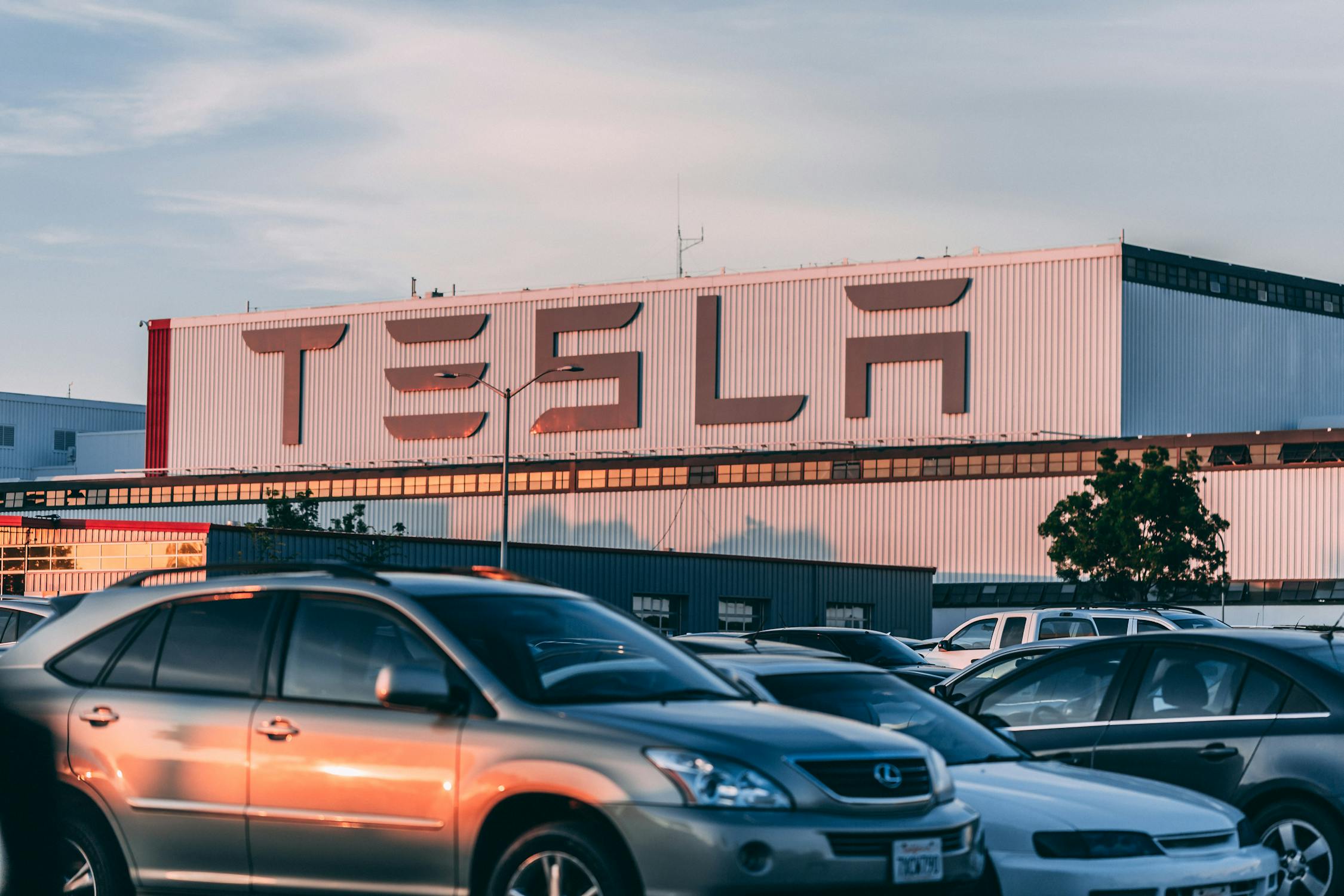Tesla Is Now Worth More Than Exxon Mobil

The Electric Rise of Tesla
The rise of the electric car is making waves within the fossil fuel industry. The prospect of electric vehicles reducing the global demand for oil has been on the minds of many oil and gas producers over the past decade. However, things are heating up faster than ever for the fossil fuel industry. In a historic turn of events, Tesla has now surged past Exxon Mobil in terms of total market value. The dramatic rise of this American electric car company has already surpassed the expectations of the vast majority of Wall Street analysts. Led by billionaire Elon Musk, Tesla has risen from a relatively obscure electric sports car manufacturer to become of the world’s most influential new companies. Elon Musk, who is an engineer, technology entrepreneur, industrial designer, and prominent philanthropist, has been working to revolutionize the transportation industry through the development of a series of sought-after electric vehicles. The surge in the demand and overall popularity of Tesla’s vehicles has put this electric car maker in the spotlight. Is this shift towards electric vehicles just a phase? Will gas-powered vehicles become a relic of the past? How will this impact the demand for fossil fuels? These are the pressing questions that oil and gas producers are scrambling to answer.

Surpassing Exxon Mobil
At the end of June, Tesla overtook Exxon Mobil on Wall Street. As the shares of Tesla continued to skyrocket higher, the value of the company hit $201 billion on June 30th. At the same time, the value of Exxon Mobil sank to $185 billion. In 2007, the total market capitalization of Exxon Mobil set at nearly $528 billion, making it one of the most powerful and valuable companies in history. However, since then, the downfall of Exxon Mobil has led investors and energy analysts to wonder what the future might hold for some of the world’s biggest oil and gas companies. Is the shift in market capitalization away from Exxon Mobil and towards Tesla a sign of things to come? While fossil fuel companies continue to express confidence in a rebound towards previous highs, the facts are clear. Investors are betting on a transition away from fossil fuels.
With the value of Tesla soaring to new highs and Exxon Mobil sinking to new lows, investors are continuing to put their money on a bet towards a global energy transition. As the biggest oil and gas company in the United States has been grappling with thousands of employee layoffs amid the collapse in global oil prices, Tesla continues to expand. While Toyota Motor Corporation is still known as the world’s most valuable automaker, Tesla is rapidly approaching Toyota in terms of total market capitalization. If Tesla is able to surpass Toyota, it may be impossible for the fossil fuel industry to recover from a shift away from gas-powered cars and trucks. After Tesla surpassed aircraft manufacturer Boeing earlier in the year, the electric vehicle manufacturer became the most valuable American industrial company.

Humble Beginnings
In 2003, Tesla was founded by American entrepreneurs Marc Tarpenning and Martin Eberhard with a goal of developing an electric sports car. Named after Nikola Tesla, a Serbian American inventor who is best known for his design of the innovative alternating current electricity supply system, the Tesla electric car company has aimed to incorporate the principles of Nikola Tesla’s alternating current electricity supply system into the global transportation system. Today, Tesla’s overall mission has broadened significantly. Proudly highlighted on the company’s website is its new mission to accelerate the global transition towards sustainable energy production. While Elon Musk wasn’t one of the original 2003 founders of Tesla, his contributions in the early years of the company, in addition to his vision to transform the energy industry, have helped to transform the business into one of the world’s most recognizable companies.
In 2004, shortly after cashing in on the founding of PayPal, Elon Musk approached Martin Eberhard and Marc Tarpenning with an offer to contribute $30 million to help the company build its first electric vehicle. By the end of 2004, Elon Musk became fully committed towards the development of Tesla by becoming the chairman of the company. Although, the initial years were challenging for Tesla. While the company was founded in 2003, it would take five years for the first electric car to be developed. In 2008, the Tesla Roadster made its debut in the auto market. While the Roadster never fully achieved mass market capitalization, it achieved an unprecedented 245 miles on a single charge of its battery. Moreover, with the ability to accelerate from 0 to 60 miles per hour in less than four seconds, the Roadster rivaled even the most impressive gasoline-powered sports cars on the market. The lack of an internal combustion engine meant that the Roadster’s engine relied on a series of lithium-ion batteries, which are the same batteries found in a standard laptop.

Industry Success
Despite the fact that the Tesla Roadster offered impressive handling and performance when compared to a standard gas-powered car, the cost to produce the Roadster made it unattainable for most buyers. Even with a federal electric vehicle tax credit of $7,500, the $109,000 price tag clearly made the Tesla Roadster an ultra-luxury vehicle. The lifespan of the Tesla Roadster was relatively short lived. After only four years in production, Tesla stopped producing the roadster in 2012 to focus efforts on its new Model S sedan. Following the Model S, Tesla introduced its first SUV in 2015 with the Model X. Only two years later, the mass-market Model 3 was introduced, which achieved a range of 320 miles on a single charge. A compact SUV, a pickup truck, and even a Tesla Semi were also introduced.
The initial success of Tesla’s vehicles has been impressive to say the least. The Model S earned Consumer Reports’ Best Overall Car award, while it was also named the Ultimate Car of the Year by Motor Trend. Moreover, the company’s Model X SUV was the first ever SUV to receive a 5-star safety rating in every category from the National Highway Traffic Safety Administration. In addition to producing electric vehicles, Elon Musk’s company leadership has also helped Tesla branch out into solar energy products and battery production. According to Musk, these initiatives are all part of Tesla’s plan to destroy the oil and gas industry.

Distrust of the Fossil Fuel Industry
Elon Musk frequently highlights his distrust of the fossil fuel industry. He often identifies the enormous and unrelenting power of the fossil fuel interests as part of the motivation for wanting to push the industry towards its demise. The high-stakes battle between the fossil fuel industry and Tesla has long been a feature that Musk has emphasized when addressing employees and shareholders. As global policy makers have been moving forward with efforts aimed at enhancing sustainability and combating the effects of climate change, Elon Musk has been working to advertise how Tesla can be a part of the solution. Over the years, Musk has continuously maintained that either you are part of the solution, or you are part of the problem. With many world leaders focused on fighting climate change, Musk has used his power and his influence to advocate for alternatives to fossil fuels. He has labeled them as part of the problem, with the development of Tesla as an opportunity to bridge the gap between a current society that is fighting to address carbon emissions and a future society that will require alternative sources of energy and transportation.
Elon Musk says that Tesla will be a part of the global transition to sustainable energy. However, in the company’s efforts to be a part of the sustainability solution, Musk has claimed that the fossil fuel industry has been purposely trying to sabotage Tesla. In an email sent to Tesla employees, Musk said, “The oil and gas companies, the wealthiest industry in the world – they don’t love the idea of Tesla advancing the progress of solar power and electric cars. Don’t want to blow your mind, but rumor has it that those companies are sometimes not super nice. Then there are the multitude of big gas/diesel car company competitors. If they’re willing to cheat so much about emissions, maybe they’re willing to cheat in other ways” (Randall, 2018). Musk has even claimed that the media giants are also indebted to the interests of the fossil fuel companies.
In an effort to fight back against the fossil fuel industry, Elon Musk has made comparisons between oil and gas companies and the tobacco industry. At a 2013 Tesla showroom unveiling in London, Musk said, “It’s kind of like the battle against big tobacco in the old days, and how they’d run all these ads about how tobacco’s no problem” (Randall, 2018). Even though Tesla doesn’t run advertising campaigns, Musk has suggested that there is a need to educate people and revolt against the fossil fuel industry propaganda. It is clear that Tesla presents numerous threats to the future viability of the fossil fuel industry. Because of this, oil and gas companies are trying to identify opportunities to undercut Tesla’s gains in the auto industry. Shifting political priorities and swiftly evolving technologies may end up causing serious pain for the fossil fuel industry. Depending on the future adoption rate of electric vehicles, the world’s thirst for oil and gas may come sooner than many energy analysts expect.

Where Is Oil Demand Heading?
According to analysts from Bloomberg New Energy Finance, global electric vehicle sales are forecasted to increase to 30 million by 2030, which would be an increase of 28.9 million vehicles since 2017 (Randall, 2018). JJ Kinahan, a senior market strategist with TD Ameritrade, says that the oil industry may be headed down a path that is similar to the experience of the coal industry. As the growth of the natural gas industry started to take a chunk out of the demand for coal, the decline of the coal industry accelerated. Kinahan says, “Look at what happened to the coal industry. You have to keep that in the back of your mind and be vigilant. It can turn very, very quickly” (Egan, 2019). As companies like Tesla continue to take a chunk out of the demand for oil, the market may turn away from oil more rapidly than anyone expects.
By 2040, the demand for electric vehicles could cause the demand for gasoline to drop by 40 percent (Egan, 2019). With this in mind, some analysts still say that gas-powered cars are unlikely to go anywhere anytime soon. There are currently over 260 million internal combustion cars on the road in the United States. Moreover, gas-powered vehicle sales still reach around 17 million annually (Clemente, 2019). Even with electric vehicles continuing to make progress in terms of the overall market share, it could still be decades before gas-powered vehicles start to disappear from American roadways. Furthermore, it is easy to make an assumption that oil and gas is going to rapidly disappear with one-dimensional thinking. While it is becoming clear that the world is heading towards an energy transition, many analysts expect that the world’s biggest oil and gas companies will use their massive balance sheets to adapt to a low-carbon future.
Sources
Clemente, J. (2020). “Tesla and Electric Cars Don’t Replace Oil and Natural Gas.” Forbes.
Duggan, W. (2020). “Tesla Can’t Replace Big Energy Names Like Exxon Mobil.” Investor Place.
Egan, M. (2019). “The Tesla effect: Oil is slowly losing its best customer.” CNN Business.
Gregersen, E. (2020). “Tesla, Incorporated: An American Company.” Encyclopedia Britannica.
Randall, T. (2018). “Elon Musk says Tesla’s goal is to destroy oil industry, but he wants to infuse Tesla with oil money.” The Los Angeles Times.
Wethe, D. (2020). “Tesla overtakes Exxon’s market value in symbolic energy shift away from fossil fuels.” Bloomberg News.



